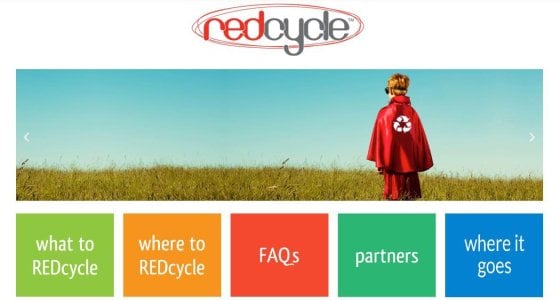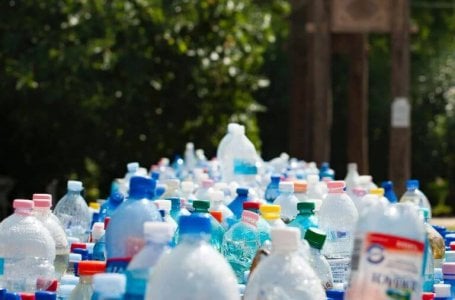Supermarket Giants Provide Update On Soft Plastics Recycling—Will It Happen By Late 2023?
- Replies 6
For a while now, many Australians have been wondering what will happen to the soft plastics recycling scheme made by former operator REDCycle. This comes after reports that thousands of tonnes of soft plastic waste had been piling up in warehouses and not being recycled, despite the program’s intended purpose.
Recently, supermarket giants ALDI, Coles, and Woolworths announced their joint ‘road map to restart’ plan to resume soft plastic collection and recycling.
But many aren’t convinced – the supermarkets themselves are unsure if they can meet their self-imposed deadlines.
The joint plan was released on Tuesday despite being unable to guarantee that recyclers can process the more than 12,400 tones of plastics already stockpiled by former operator REDCycle. This report comes after customers asked why the retail giants are still promoting their soft plastic recycling program.
There’s even less guarantee that capacity exists for the program to restart. But they envision collections to resume on a pilot basis in select stores in late 2023.
The plastic recycling program collapsed late last year after it was revealed that hundreds of millions of bags and other soft plastic items dropped off by shoppers of supermarkets were being secretly stockpiled in warehouses and not recycled.
According to reports, instead of being taken to companies that can recycle the plastic, the operator had been transporting the plastic to warehouses – making it a potential environmental and fire safety risk.
The Melbourne-based company claimed to collect up to 5 million plastic items a day from drop-off points at nearly 2,000 supermarkets across Australia. They did not publicly announce the suspension of the recycling component of its program and continued to collect plastic for months before it was revealed to the public.
As a result, the Environment Protection Authority Victoria (EPA) charged RG Programs and Services, operators of the REDCycle program, with three counts of failing to comply with their information-gathering process. If found guilty, the company could pay the maximum fine of more than $165,000, and further charges for breaching environmental law could be laid.
Despite all the controversy and the ongoing investigation, the Soft Plastics Taskforce was reconvened by the federal government.
‘While the task force is working on launching in-store collections urgently, it is severely constrained by Australia’s limited access to domestic soft plastic recycling which can manage the ‘mixed polymer’ soft plastics that are deposited by the public in supermarket collection bins,’ a spokesperson for the supermarkets explained.
However, the plan mentioned that a full-fledged nationwide return may not happen until 2025.
The spokesperson continued: ‘From late 2023, the task force will meet the newly available processing capacity with a staged re-introduction of in-store collections so that the volume of incoming household soft plastics does not exceed the amount that can be recycled, as occurred with REDCycle.’
The plan also intends to clear the massive backlog left by the failure of the REDCycle program last year. The task force estimates this could take a year to resolve.
‘Should new domestic processing capacity be taken up by the estimated 12,000 tonnes of stockpiled material for at least a year, the recommencement of in-store collections will be delayed,’ the spokesperson added.
In a bid to reduce the likelihood of this happening, supermarkets will look to export the stockpiled materials to recycling plants overseas – and promise to deliver transparency, traceability, and government approvals to their stakeholders.
In February, Coles and Woolworths were granted control of the REDCycle’s unrecycled stockpiles that had accumulated over time. It was reported that both companies had paid more than $20 million to REDCycle over the last decade.
‘Restoring public trust in soft plastic recycling is paramount, and the task force will reintroduce soft plastic collections when it can be confident that it will be properly recycled. We owe it to consumers to get this right,’ the task force spokesperson stated.
Environment Minister Tanya Plibersek said the announcement was a major step forward for the recycling sector and credited the Labour government for creating the conditions for the deal to be reached.
‘The Albanese Labour government welcomes the announcement today by Coles and Woolworths of a path forward to resume soft plastics collection. This was possible because we moved to bring the supermarkets together and obtained ACCC approval for them to meet to resolve the problems created by the collapse of REDCycle,’ she said.
On the other hand, this relaunch announcement was criticised as misleading by the Director of Sustainability Organisation Boomerang Alliance, Jeff Angel.
He said the road map ‘reveals what a big con the plastic industry is’. ‘Now they can’t even restart collections at the end of the year at the scale of the small REDCycle scheme. I don’t think the community trusts the supermarkets and packaging sector to get it right on their own,’ he continued.
The NSW environment regulator has also ordered the supermarkets to remove 5,200 tonnes of soft plastics stored by the REDCycle around the state within ten weeks.
This comes after the EPA alleged that Coles and Woolworths directly contributed to the pollution risk promoted by the REDCycle program, allowing their premises to be used as collection points and underwriting the costs of the recycling scheme.

Do you believe supermarkets can pull off this recycling scheme, members? Do we need more government involvement, or do you think we put more trust in private companies? Share your thoughts in the comments!
Recently, supermarket giants ALDI, Coles, and Woolworths announced their joint ‘road map to restart’ plan to resume soft plastic collection and recycling.
But many aren’t convinced – the supermarkets themselves are unsure if they can meet their self-imposed deadlines.
The joint plan was released on Tuesday despite being unable to guarantee that recyclers can process the more than 12,400 tones of plastics already stockpiled by former operator REDCycle. This report comes after customers asked why the retail giants are still promoting their soft plastic recycling program.
There’s even less guarantee that capacity exists for the program to restart. But they envision collections to resume on a pilot basis in select stores in late 2023.
The plastic recycling program collapsed late last year after it was revealed that hundreds of millions of bags and other soft plastic items dropped off by shoppers of supermarkets were being secretly stockpiled in warehouses and not recycled.
According to reports, instead of being taken to companies that can recycle the plastic, the operator had been transporting the plastic to warehouses – making it a potential environmental and fire safety risk.
The Melbourne-based company claimed to collect up to 5 million plastic items a day from drop-off points at nearly 2,000 supermarkets across Australia. They did not publicly announce the suspension of the recycling component of its program and continued to collect plastic for months before it was revealed to the public.
As a result, the Environment Protection Authority Victoria (EPA) charged RG Programs and Services, operators of the REDCycle program, with three counts of failing to comply with their information-gathering process. If found guilty, the company could pay the maximum fine of more than $165,000, and further charges for breaching environmental law could be laid.
Despite all the controversy and the ongoing investigation, the Soft Plastics Taskforce was reconvened by the federal government.
‘While the task force is working on launching in-store collections urgently, it is severely constrained by Australia’s limited access to domestic soft plastic recycling which can manage the ‘mixed polymer’ soft plastics that are deposited by the public in supermarket collection bins,’ a spokesperson for the supermarkets explained.
However, the plan mentioned that a full-fledged nationwide return may not happen until 2025.
The spokesperson continued: ‘From late 2023, the task force will meet the newly available processing capacity with a staged re-introduction of in-store collections so that the volume of incoming household soft plastics does not exceed the amount that can be recycled, as occurred with REDCycle.’
The plan also intends to clear the massive backlog left by the failure of the REDCycle program last year. The task force estimates this could take a year to resolve.
‘Should new domestic processing capacity be taken up by the estimated 12,000 tonnes of stockpiled material for at least a year, the recommencement of in-store collections will be delayed,’ the spokesperson added.
In a bid to reduce the likelihood of this happening, supermarkets will look to export the stockpiled materials to recycling plants overseas – and promise to deliver transparency, traceability, and government approvals to their stakeholders.
In February, Coles and Woolworths were granted control of the REDCycle’s unrecycled stockpiles that had accumulated over time. It was reported that both companies had paid more than $20 million to REDCycle over the last decade.
‘Restoring public trust in soft plastic recycling is paramount, and the task force will reintroduce soft plastic collections when it can be confident that it will be properly recycled. We owe it to consumers to get this right,’ the task force spokesperson stated.
Environment Minister Tanya Plibersek said the announcement was a major step forward for the recycling sector and credited the Labour government for creating the conditions for the deal to be reached.
‘The Albanese Labour government welcomes the announcement today by Coles and Woolworths of a path forward to resume soft plastics collection. This was possible because we moved to bring the supermarkets together and obtained ACCC approval for them to meet to resolve the problems created by the collapse of REDCycle,’ she said.
On the other hand, this relaunch announcement was criticised as misleading by the Director of Sustainability Organisation Boomerang Alliance, Jeff Angel.
He said the road map ‘reveals what a big con the plastic industry is’. ‘Now they can’t even restart collections at the end of the year at the scale of the small REDCycle scheme. I don’t think the community trusts the supermarkets and packaging sector to get it right on their own,’ he continued.
The NSW environment regulator has also ordered the supermarkets to remove 5,200 tonnes of soft plastics stored by the REDCycle around the state within ten weeks.
This comes after the EPA alleged that Coles and Woolworths directly contributed to the pollution risk promoted by the REDCycle program, allowing their premises to be used as collection points and underwriting the costs of the recycling scheme.
Key Takeaways
- Coles, Woolworths and ALDI hope to restart soft plastics collection and recycling by the end of the year.
- They could start collections on a pilot basis in select stores in late 2023.
- The supermarkets have been ordered by the NSW environment regulator to remove 5,200 tonnes of soft plastics stored by REDCycle within ten weeks.
- The supermarket chains have taken control of the entire 12,400 tonnes of plastic amassed by the failed operator.









